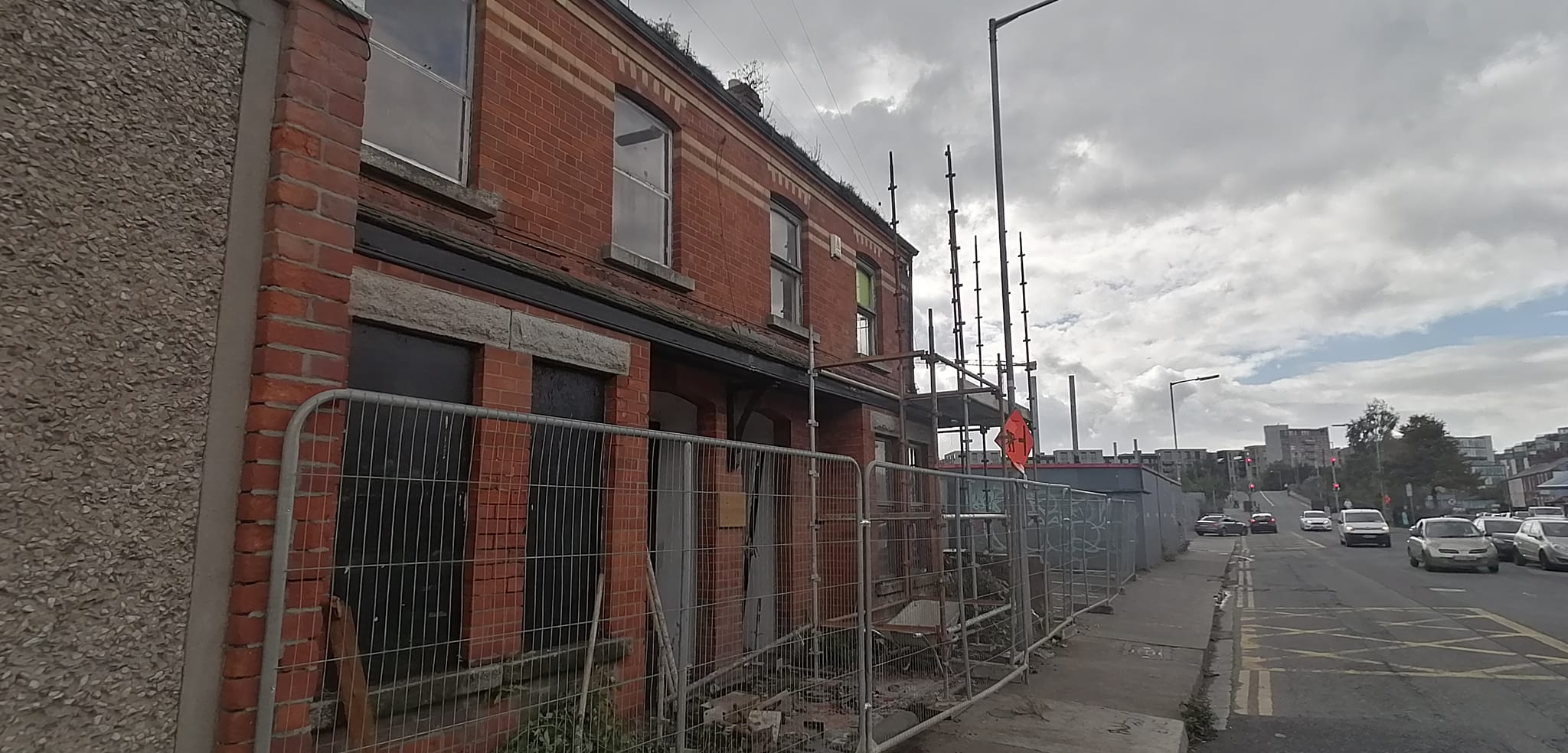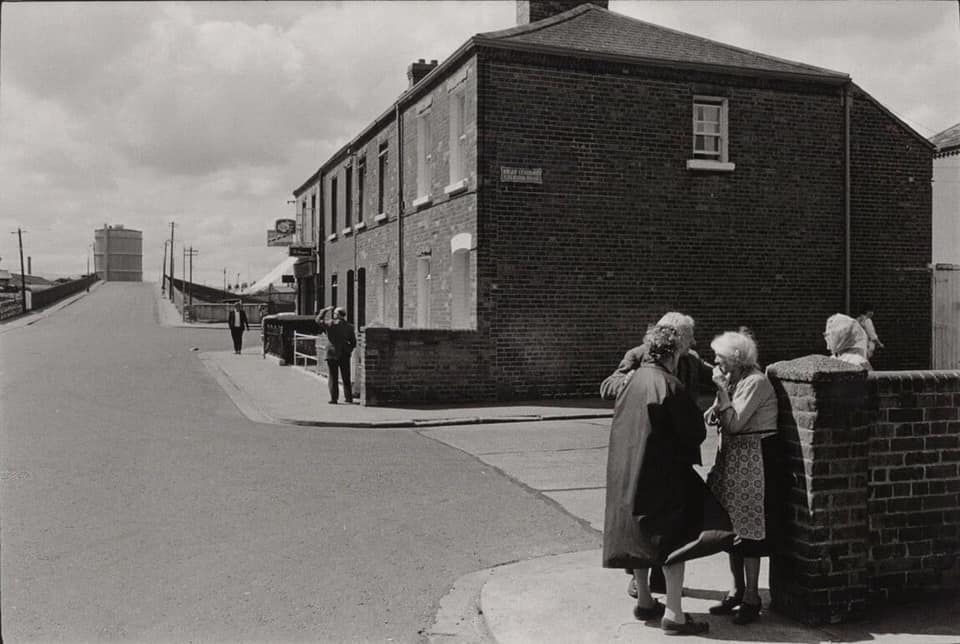EAST ROAD, EAST WALL :

Demolished, September 2022
The recent demolition of a number of houses on East Road cause quite a stir in the community. A common thread was how such unique properties had been allowed to remain largely unused for years until the wrecking ball was ready for them. One of the unique joys of East Wall is the diversity of its architecture, a legacy of small-scale development to meet the needs of a growing workforce in the area. Much of the pre-nineteen twenties houses were constructed by employers for members of their workforce. In some cases, these encompass whole streets such as Merchant’s Road (The Merchant’s Warehousing Company), Fairfield Road (Dublin Dockyard) or New Wapping Street (The London and North Western Railway). In others it was just a small terrace of houses such as Rose Terrace (Collen Brothers), or Pickford Terrace (Pickford’s Haulage Company). The companies may be long gone but the houses of their workers which still remain act as an indelible reminder of the area’s industrial heritage.
A number of people wondered who had lived in the Terrace? What their story was? Sadly, there were no answers. However, the event did bring to mind a previous demolition in 1999 when the development of Teeling Way saw the loss of a house on East Road which had been the home of Billy Woods and Nora Wooloughan. Billy and Nora were the grandparents of the poet Macdara Woods, who although born in Leeson Street, came from a long line of East Wall Sea Captains and had many childhood memories of that house. As the demolition began Woods put pen to paper to record happy childhood memories in his grandparents’ house all of which would soon be erased.
The result was the poem East Road, East Wall from his 2001 collection Knowledge in the Blood. It’s a wonderfully evocative poem of a lifestyle now lost and in tribute to the now forgotten residents of the recently demolished houses we are giving the poem below:
“East Road, East Wall”
there was sunlight in the yard
when I broke my toe
five years of age
fifty years ago
in the hall the Japanese umbrellas
in the parlour
the mandolin and concertina
always sunlight in the yard
and heaps of coal
light from the locomotives
I know
The heat from the fire-box
In Westerns
In the roof there were pointed windows
behind the house
the verandah
trainlines leading to the docks
down there where my green balloon
sailed off
all those years ago
and a journey with my mother
across Dublin
past the Custom House –
Oh don’t put me
in there – I said
don’t ever put me in there –
three of us up
on a donkey and cart
moving my grandfather’s piano
me and my mother
and the one-armed driver
my mother engaged –
piano – mover with a heart condition
anchored in time
and light – a child
in Gandon’s open space
where my
one-legged great-grand-uncle
navigated yet another
nautical academy
the first left sailing empty
abandoned in Belfast
behind us all the afternoon
the East Wall in the sun
the parish register
Of Lawrence O’Toole’s –
recording the marriage of Wooloughan and Dias
and where was she from I wonder
the Iberian name at last
the further I go
the nearer I get
get back to the peninsula
travelling south to Pembroke Street
travelling now to
Clonskeagh
half a century later
across the river and the city
across the Grand Canal
(that’s my house there
in Ranelagh
that’s where my son lives
and I
hold onto this
I think
and that is where I was born
down there
in Upper Leeson Street)
on the anniversary of my father’s death
I am looking toward
Clonskeagh
where my mother is slowly dying
and saying her fragments of prayers
from childhood – oh
in this January month
as always
the trees are bare
I see too clear
In the pumping station
I paused today
there was sunlight in the yard
the engineer says
there is always sunlight here
he says –
not true I know
but I know what he means
for this was a place for photographs
on kitchen chairs
hauled into daylight
my people sat here
afternoons
this week
they began to knock the house
that was Billy Wood’s home:
and Nora Wooloughan’s
the Japanese umbrellas
the mandolin and concertina
the columned clock on the mantle
their three sons
the heap of coal
the puff and steam of locomotives
and the shaking great pump-engines
Gone
outside the bricked-up
parlour window
a palm tree in the earth lives on …
(January 1999.)




